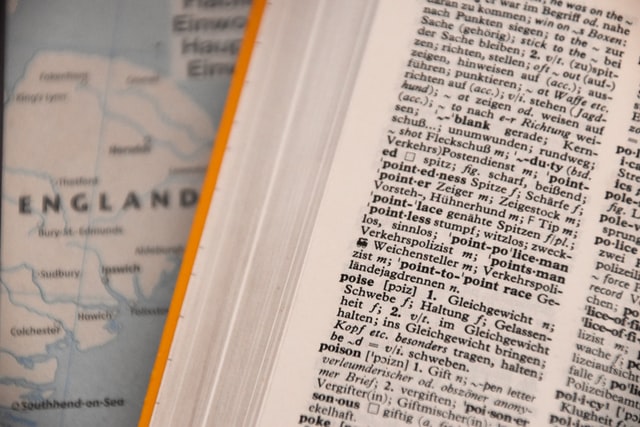Today, 23rd April, is World English Language Day! With all the doom and gloom out there at the moment we thought it provides a good opportunity to celebrate a little something… why not?!
What’s it all about?
World English Language Day has taken place annually on the 23rd April since 2010. It’s an intiative launched by the United Nations as a way of celebrating the 6 languages they recognise as the official languages used by the organisation.
The 6 languages and their celebration dates are:
- Arabic (18 December)
- French (20 March)
- Chinese (20 April)
- English (23 April)
- Spanish (23 April)
- Russian (6 June)
The choice of 23rd April as our day of celebration is no coincidence as it has particular cultural significance here in England: it’s not only St George’s Day of course, it was the date that William Shakespeare was born and indeed died on – and as he’s recognised as the greatest writer in our history, it’s very fitting to celebrate all things English language related on this day!
Some interesting and unusual facts about the English language
- We can trace the roots of English back to various dialects of the Anglo-Saxon languages around 1500 years ago, but another change to add to the mix came in 1066 when William I became king. Hailing from what is now called France, it meant that Norman-French was used as the language of the courts and official activity. It made it much more difficult to understand each other initially as the upper classes spoke French, while the lower classes continued to use English.
- “I” is one of the shortest and oldest words in the English language.
- 11% of English consists only of the letter “E”. In fact, the letter “e”2 occurs at a rate of over one in 10 letters.
- We’ve spoken before about how English is constantly evolving – in fact some words have even completely changed their meaning over the course of time – but did you know that a new word is added to the English dictionary roughly every 2 hours?!
- There are some words that don’t have a singular form. Just think, glasses (as in spectacles) can’t become… glass! And neither can scissors.
- There are more people around the globe who’ve learned English as a second language than there are native English speakers.
- The # sign isn’t always called a hashtag. Depending on where you are in the world it can be called a number sign or a pound sign.
- The toughest tongue twister in the English language is said to be “sixth sick sheik’s sixth sheep’s sick”. How do you get on when you give it a try?!
- There are certain words that look the same even if they’re spelled upside down! Swims, suns and dollop are examples of these.
- The opposite of sparkle is… darkle!
With about 1 in 4 people around the world being able to speak English you can see why it’s the powerhouse of language, can’t you?!
Happy World English Language Day everyone… and St George’s Day too!

